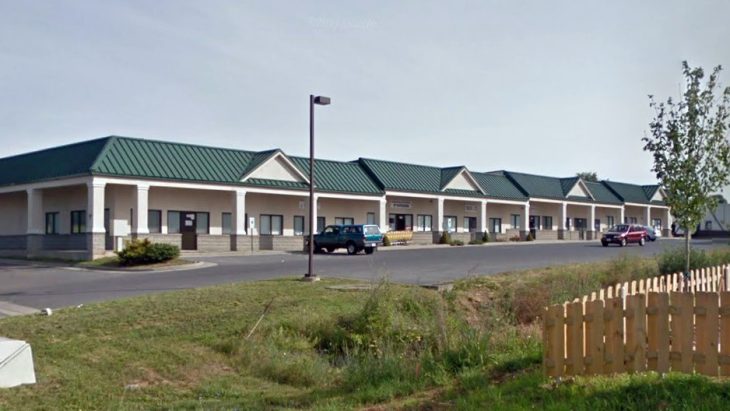Harrisonburg Treatment Center

About Harrisonburg Treatment Center
Harrisonburg Treatment Center is located in Harrisonburg, Virginia. They are an outpatient facility specializing in opioid addiction recovery. They offer medication assisted treatment using FDA approved medications such as methadone, buprenorphine and Suboxone.
The center accepts Medicaid and most forms of private insurance. Out of pocket payment methods may also be available. The staff provides assistance for insurance verification and coverage questions.
Holistic Addiction Care for Women in Harrisonburg
This program caters to men and women aged 18 and over who are struggling with opioid addiction. They deliver specialized support for pregnant women and those involved in the legal system. Their medical team includes physicians, nurses and licensed counselors experienced in addiction medicine.
Along with detox services, the center offers individual, group and family therapy. They place a particular emphasis on medications combined with counseling as the gold standard for opioid addiction recovery. Education and relapse prevention support are integrated into care plans, as well as regular medical and clinical assessments aimed at monitoring progress and adjusting treatment.
Convenient Location Near James Madison University
The location of the center stands out to me for its proximity to local parks and recreational areas that may be conducive to healing. Private counseling rooms are provided for confidentiality and comfort. Downtown Harrisonburg is nearby, allowing for easy access to community support and resources.
James Madison University and Edith J. Carrier Arboretum are both short drives away, which offers quiet natural spaces for relaxation and reflection. Patients praise the nonjudgmental staff and express appreciation for the flexibility of the programming.
Many clients credit the treatment structure with improving their quality of life. Clinicians associated with the program stress the significance of teamwork and individualized attention to recovery needs.
| Levels of Care | Detox Service Setting | Programs | Payment Options | |||
|---|---|---|---|---|---|---|
|
In outpatient therapy, you’ll attend therapy sessions several times each week while living at home. This is ideal if you have a strong support system and a lower risk of relapse. Outpatient treatment offers flexibility to maintain work, school or family obligations. |
||||||
|
Outpatient detox gives you access to medically supervised withdrawal services while still allowing you to live at home. You’ll attend a clinic for treatment and monitoring. This flexible option is suitable for those with mild to moderate withdrawal symptoms who have strong support systems. |
||||||
|
Adult programs address the substance use and life challenges specific to adults. Therapists can deliver sessions in individual, group and family settings. Services often include job support and life skills training in a structured environment. |
Alcohol detox programs offer medical support to help individuals withdraw safely from alcohol. Your care team may use medications to ease your symptoms and provide medical monitoring to address complications. |
Drug detox programs support individuals who are withdrawing from addictive substances like cocaine and heroin. Medical support helps you manage symptoms in a controlled and safe environment so you can achieve initial sobriety. |
Men's programs address substance use while also considering the social pressures, family roles and mental health concerns that are specific to men. You’ll learn healthy coping mechanisms as you build emotional resilience and develop communication skills. |
Opioid detox uses medications to ease severe withdrawal symptoms. It also includes medical supervision to help you manage potential complications. These services allow you to stabilize and begin a recovery plan. |
Women's programs offer a safe and supportive space to focus on gender specific issues such as trauma, family roles and mental health conditions. Therapists tailor the sessions to address women's needs and foster empowerment in a healing and nurturing environment. |
Young adult programs are designed for individuals who are transitioning into adulthood. Topics of discussion typically include identity, independence and peer relationships. Providers may also offer life skills training and career support. |
|
Medicaid
|
Private Insurance
|
Self Pay
|
Levels of Care
In outpatient therapy, you’ll attend therapy sessions several times each week while living at home. This is ideal if you have a strong support system and a lower risk of relapse. Outpatient treatment offers flexibility to maintain work, school or family obligations.
Detox Service Setting
Outpatient detox gives you access to medically supervised withdrawal services while still allowing you to live at home. You’ll attend a clinic for treatment and monitoring. This flexible option is suitable for those with mild to moderate withdrawal symptoms who have strong support systems.
Programs
Adult programs address the substance use and life challenges specific to adults. Therapists can deliver sessions in individual, group and family settings. Services often include job support and life skills training in a structured environment.
Alcohol detox programs offer medical support to help individuals withdraw safely from alcohol. Your care team may use medications to ease your symptoms and provide medical monitoring to address complications.
Drug detox programs support individuals who are withdrawing from addictive substances like cocaine and heroin. Medical support helps you manage symptoms in a controlled and safe environment so you can achieve initial sobriety.
Men's programs address substance use while also considering the social pressures, family roles and mental health concerns that are specific to men. You’ll learn healthy coping mechanisms as you build emotional resilience and develop communication skills.
Opioid detox uses medications to ease severe withdrawal symptoms. It also includes medical supervision to help you manage potential complications. These services allow you to stabilize and begin a recovery plan.
Women's programs offer a safe and supportive space to focus on gender specific issues such as trauma, family roles and mental health conditions. Therapists tailor the sessions to address women's needs and foster empowerment in a healing and nurturing environment.
Young adult programs are designed for individuals who are transitioning into adulthood. Topics of discussion typically include identity, independence and peer relationships. Providers may also offer life skills training and career support.




